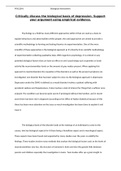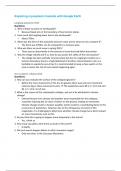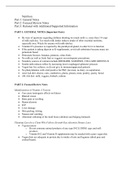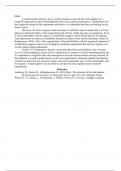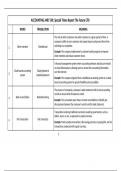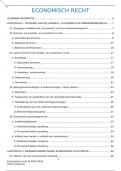Essay
Biological Psychology Depression Essay
- Institution
- De Montfort University (DMU)
A 2000 word essay on the biological basis of depression for the 2nd year 'Biological Psychology' module. Answering the question: 'Critically discuss the biological basis of depression. Support your argument using empirical evidence'.
[Show more]
